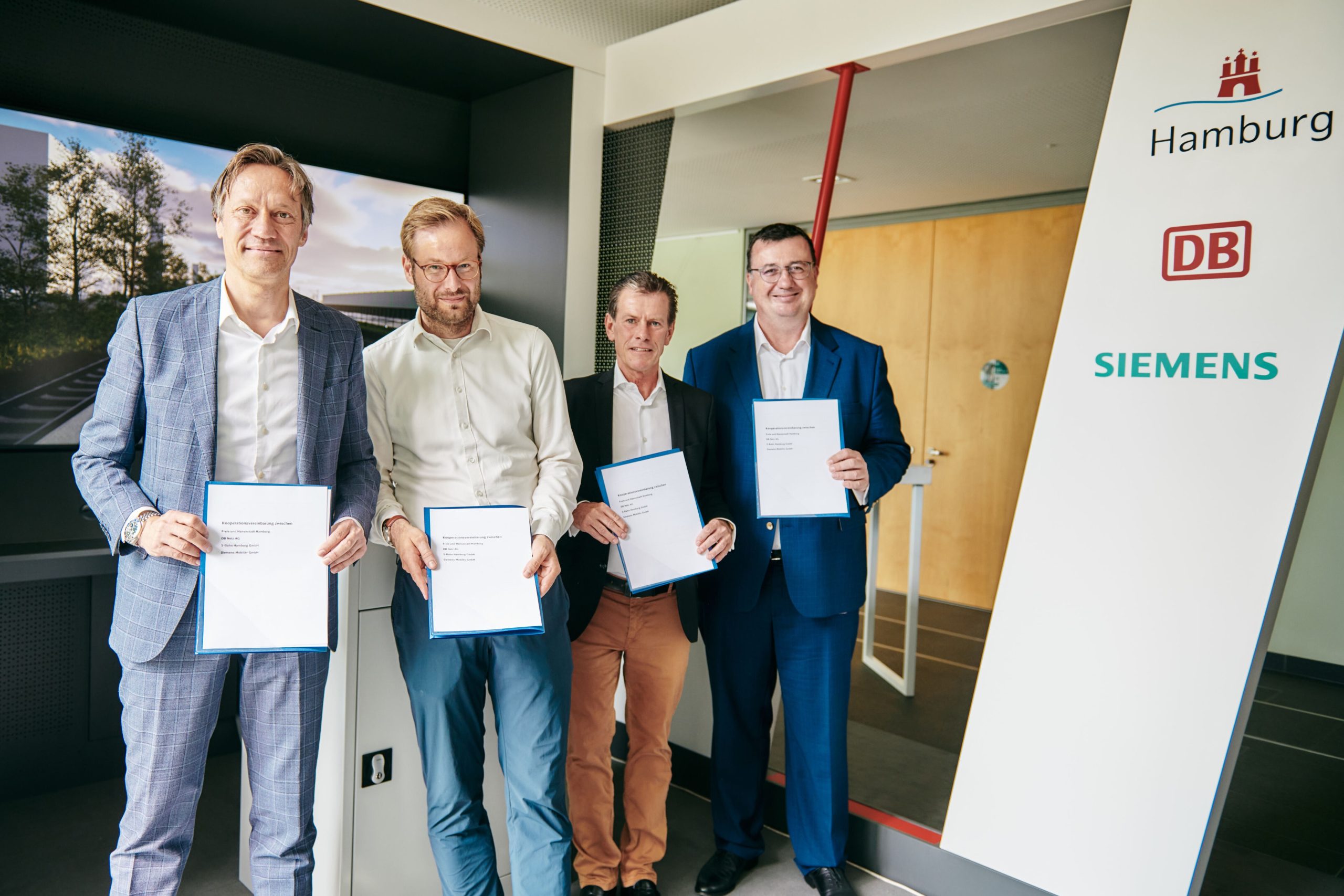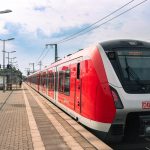 The City of Hamburg, Deutsche Bahn, and Siemens Mobility signed a cooperation agreement for Digitale S-Bahn Hamburg 2.0 under which a new intelligent operations control system will be introduced to reduce the trains’ power consumption by up to 30 percent.
The City of Hamburg, Deutsche Bahn, and Siemens Mobility signed a cooperation agreement for Digitale S-Bahn Hamburg 2.0 under which a new intelligent operations control system will be introduced to reduce the trains’ power consumption by up to 30 percent.
The system will be tested until the UITP World Congress 2025.
The project, costing EUR 35 million, is jointly funded by DB, the city of Hamburg, and Siemens Mobility.
“The new project is another step towards the digitisation of the S-Bahn Hamburg. We have been very successful with the pilot route of the Digitale S-Bahn in passenger service since last September. Now we can create further prerequisites for an efficient and energy-saving digital S-Bahn operation of the future,” Kay Arnecke, Managing Director S-Bahn Hamburg said.
The intelligent operations system of the Digitale S-Bahn Hamburg 2.0 saves energy through two approaches. With technology knowing the exact positions of all trains in the network, rolling phases can be better utilised, and stops on the track can be avoided. Furthermore, the system reduces peak loads in power consumption by preventing multiple trains from starting simultaneously on the track.
The project will also include a study to investigate the potential of energy recuperation through inverters into the public power grid.
The technology of the Digitale S-Bahn Hamburg is already in daily use for passengers. Four digitally controlled trains are currently operating on the Hamburg route between Berliner Tor and Bergedorf.
64 new S-Bahn trains equipped with digital technology have already been ordered. By the end of the decade, the city area of the S-Bahn Hamburg is planned to be equipped with the digital system. In 2021, the partners of the Digitale S-Bahn Hamburg jointly introduced the world’s first highly automated train in an open railway system.
“The Digitale S-Bahn is already in daily use between Berliner Tor and Bergedorf, and by 2030, it is planned to automatically transport our passengers from A to B. The automation and digitization of trains are also part of our joint agreement with the federal government to establish Hamburg as a model region for mobility nationwide,” Anjes Tjarks, Hamburg’s Senator for Transport and Mobility Transition said.
In November 2022, to build the train control system for city’s U2 and U4 lines which will allow trains to run at 100-second intervals. This makes metro operations energy-efficient with savings of up to 20%.
Share on:






